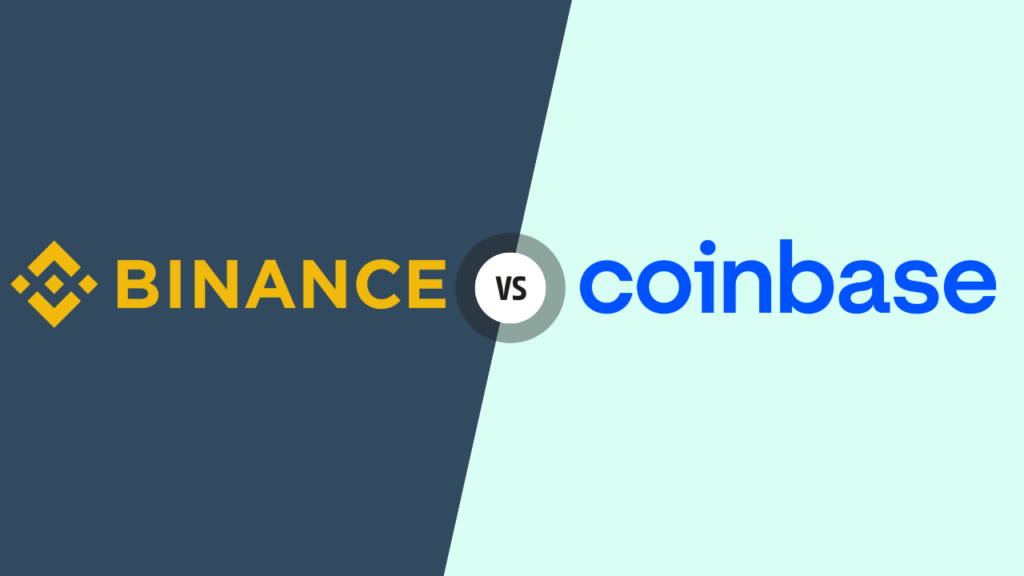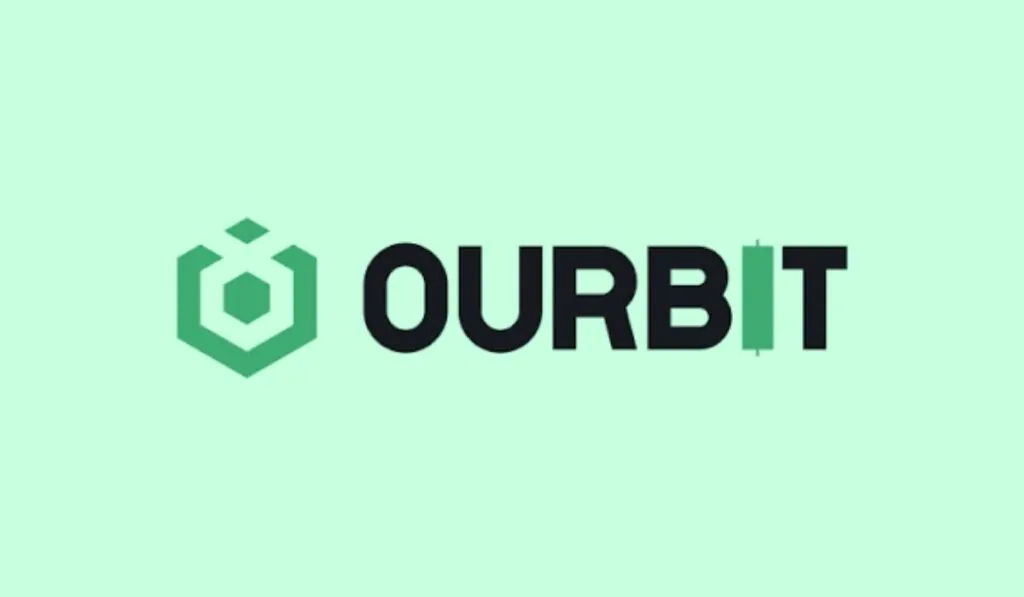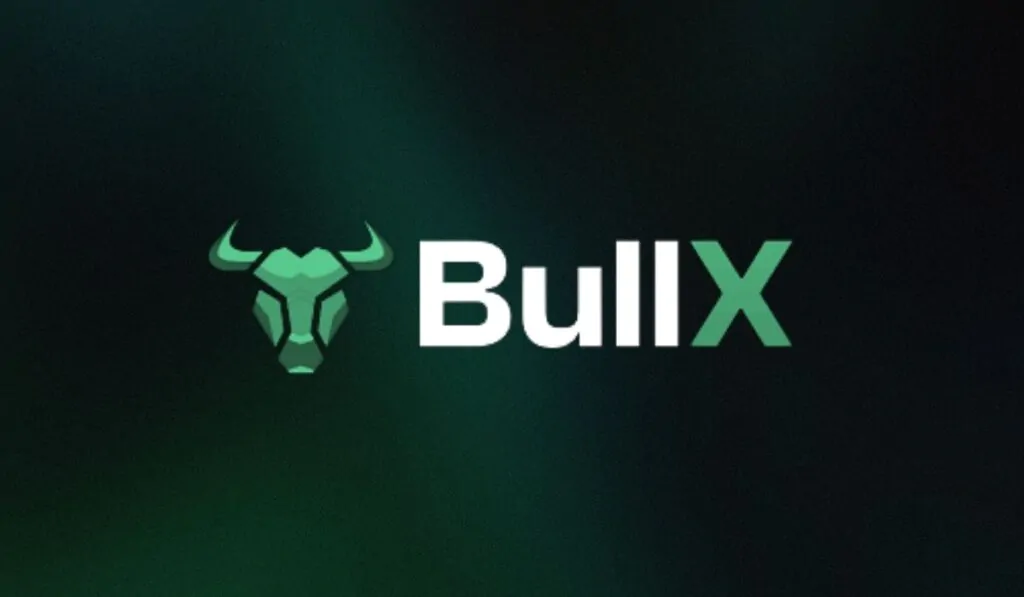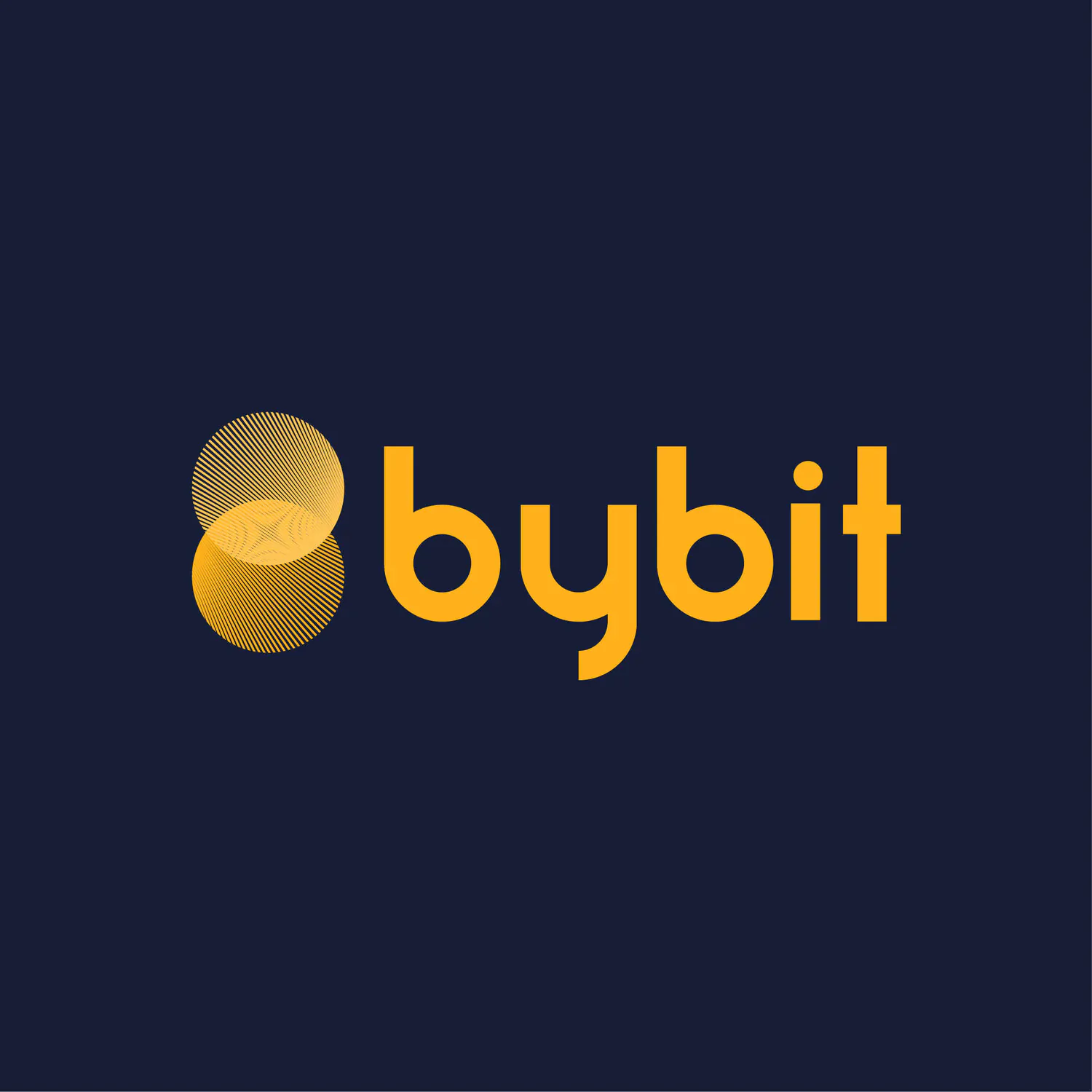When it comes to investing in cryptocurrencies like Bitcoin (BTC), Ether (ETH), or smaller-cap altcoins, selecting the right platform for buying and trading digital assets is crucial. Among the multitude of options available, Binance and Coinbase have emerged as the most widely adopted and popular crypto exchanges globally.
However, deciding which exchange suits your needs becomes a paramount concern. For beginners, a smooth experience and user-friendly accessibility are vital to prevent discouragement. Coinbase, established in 2012, is often seen as a more straightforward platform, but how does it compare to Binance? Is Binance suitable for beginners as well?
In this article, we’ll delve into the similarities and differences between Binance and Coinbase.
Overview of Binance
Binance, founded in 2017 by the Chinese-Canadian business executive Changpeng Zhao (also known as CZ), is a leading cryptocurrency exchange. With a clear writing style, let’s delve into the overview of Binance.
It has gained immense popularity and currently holds the title of the world’s largest exchange, boasting the highest daily trading volume of cryptocurrencies. Competing directly with Coinbase in terms of trading volumes and market capitalization, Binance operates in over 180 countries globally.
To comply with local regulations, Binance.US was created specifically for users in the United States. Despite facing regulatory actions and accusations of money laundering, Binance has found its footing, now headquartered in the Cayman Islands.
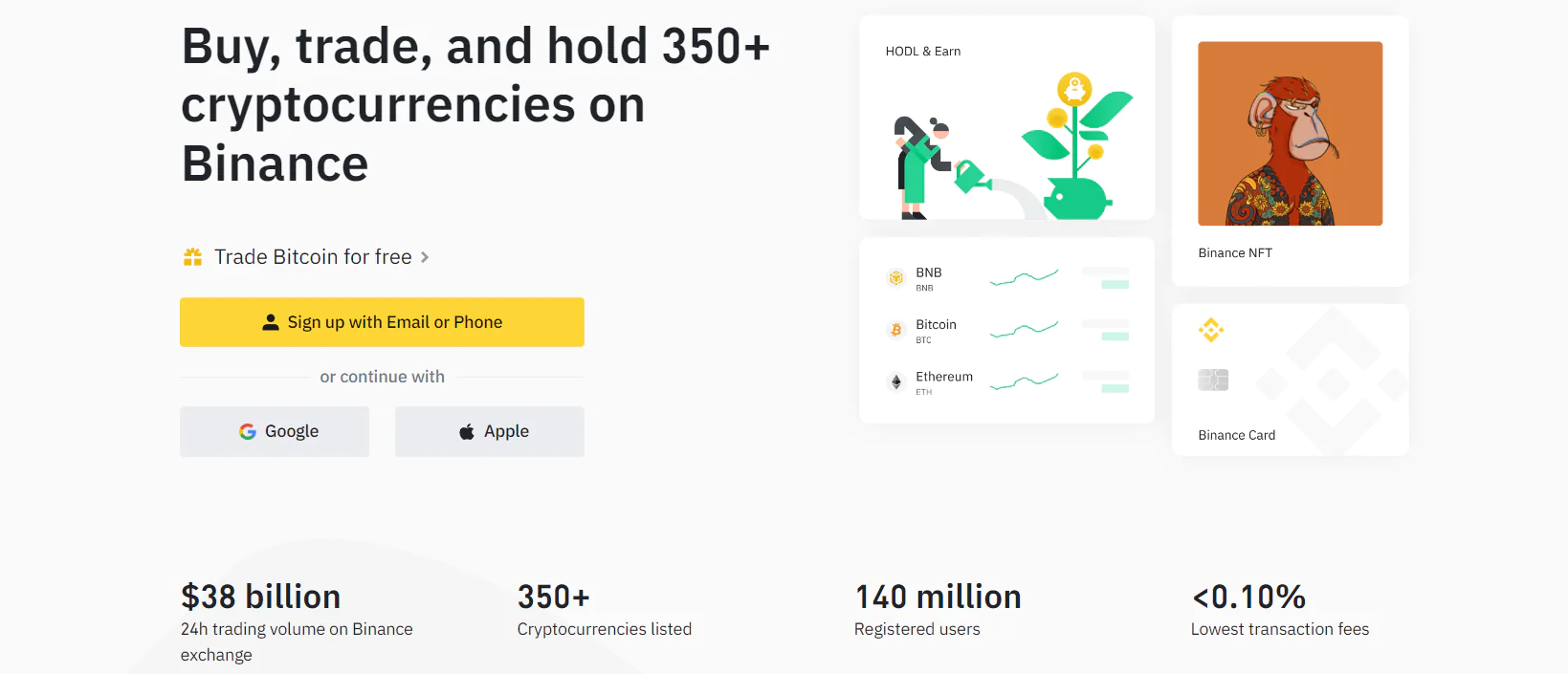
Overview of Coinbase
Coinbase, the renowned U.S.-based platform, holds an intriguing origin story. Its name stems from the term “coinbase,” which refers to the first transaction of a new block in the blockchain. Founded by Brian Armstrong, a former Airbnb engineer, and Fred Ehrsam, a former Goldman Sachs trader, Coinbase became the first mainstream Bitcoin exchange.
In its early days, Bitcoin was the only cryptocurrency available for trading, and Coinbase facilitated its purchase through bank transfers. The platform gained recognition and support from prominent venture capital firms like Union Square Ventures and Andreessen Horowitz.
Furthermore, partnerships with Overstock, Expedia, and Dell enabled these major companies to accept Bitcoin payments. Coinbase’s journey marked a significant milestone in the adoption and accessibility of cryptocurrencies.
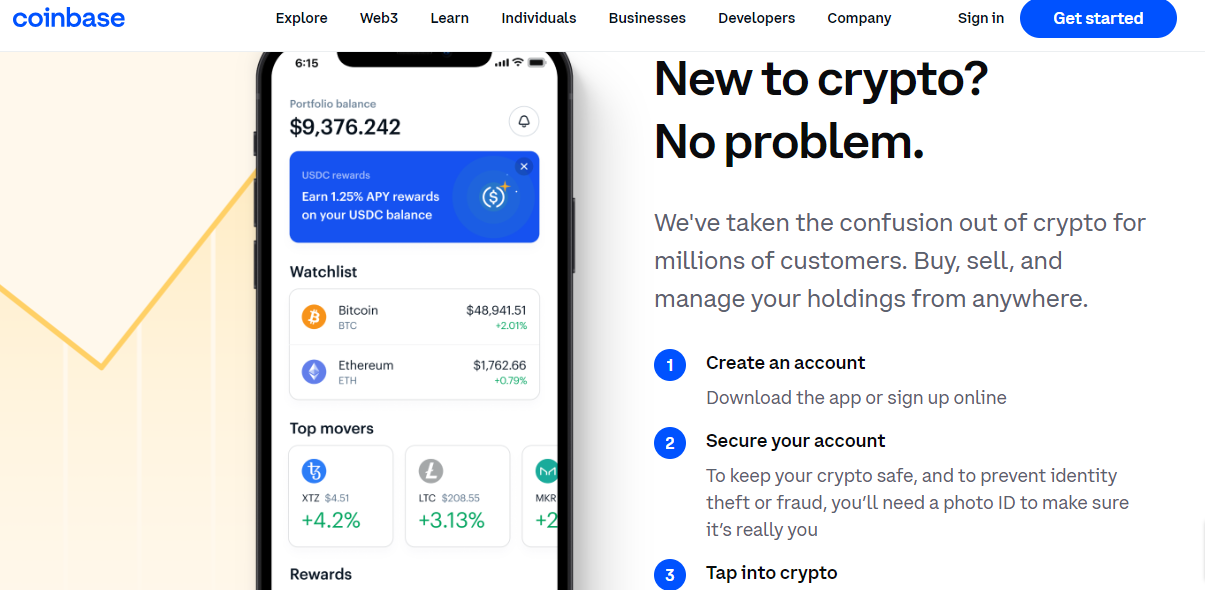
Binance Vs. Coinbase: Top Differences
Features
When it comes to cryptocurrency trading, Binance and Coinbase are two popular platforms with distinct features. Let’s dive into their unique offerings:
Binance’s Arsenal of Features:

Binance Dex and DeFi: Binance provides access to various decentralized finance (DeFi) applications, including lending, earning, insurance, and derivative services. Their Binance Dex platform also offers cross-chain bridge solutions, trading, and the ability to buy any cryptocurrency using the MoonPay payment system.
User Rewards: Binance incentivizes user participation by hosting giveaways and challenges, with users claiming prizes in the Binance rewards center. They also frequently airdrop coins or tokens that will soon be listed on their platform.
Binance Academy: Beginners and advanced traders can benefit from the free comprehensive crypto education provided by Binance Academy. It covers various topics such as trading, mining, NFTs, and the metaverse.
Multiple Trade Options: Binance offers a wide array of trading tools, including advanced charting with hundreds of overlay management options and indicators via the embedded TradingView charts.
API Keys: Binance allows third-party apps to integrate with their platform by granting public access to their API keys, enabling a more customized trading experience.
Coinbase’s Unique Features:
Learn and Earn: Coinbase rewards users for expanding their cryptocurrency knowledge. By watching educational videos on different projects, users can earn rewards in the form of a small amount of the cryptocurrency they are exploring.
Newsfeed: Coinbase users can stay up-to-date with the built-in newsfeed service, which provides current crypto news, trends, and developments in the cryptocurrency market.
Price Alerts: With Coinbase’s price alerts feature, users can receive mobile push notifications to stay informed about updates or price changes of their chosen cryptocurrencies through the provided watchlist.
Both Binance and Coinbase offer valuable features, but they cater to different trading preferences. Binance focuses on a comprehensive trading experience with advanced tools and a wide range of offerings, including DeFi and educational resources.
On the other hand, Coinbase provides a user-friendly interface with features like educational rewards, a newsfeed, and convenient price alerts.
Supported Currencies
When it comes to supported currencies, Binance and Coinbase offer a wide range of options, catering to different needs and preferences. Binance, with its global platform, boasts over 600 listed cryptocurrencies, making it a prominent player in the crypto exchange world.
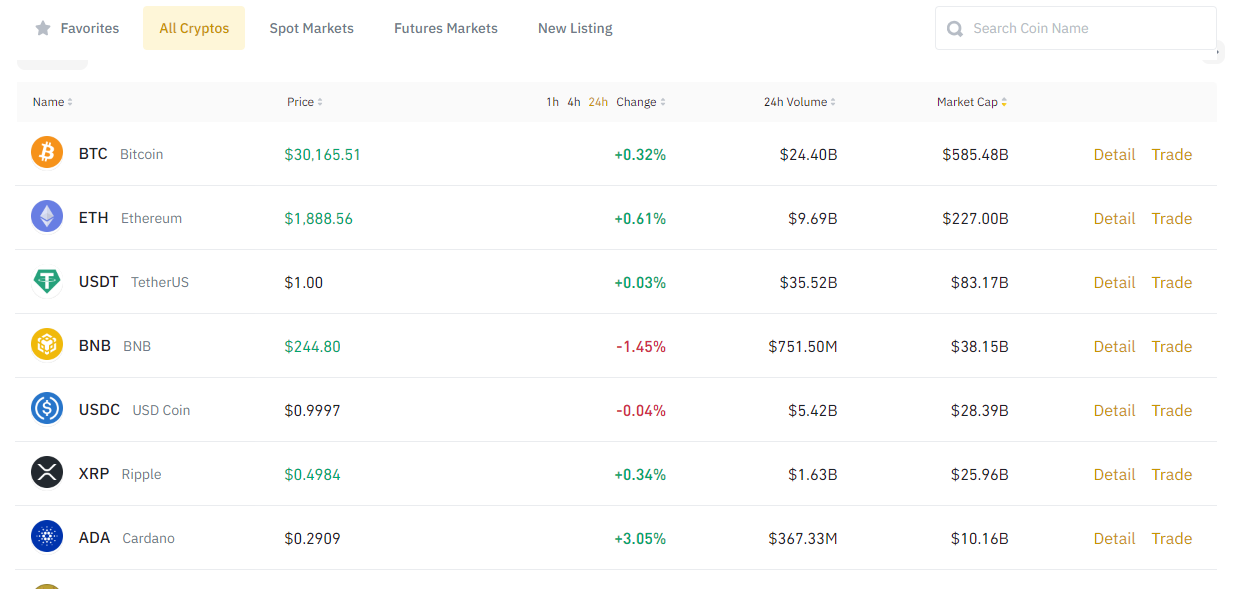
However, it’s important to note that Binance US, due to legal constraints, supports fewer assets, currently providing access to over 100 tokens for US investors.
On the other hand, Coinbase, on its retail and institutional platforms, supports over 182 major cryptocurrencies. The platform pays attention to client demand, continuously listing new coins that meet specific volume criteria on decentralized exchanges.
This ensures that popular coins like Bitcoin (BTC), Ethereum (ETH), Cardano (ADA), and Solana (SOL) are readily available for Coinbase users to buy, store, and trade.
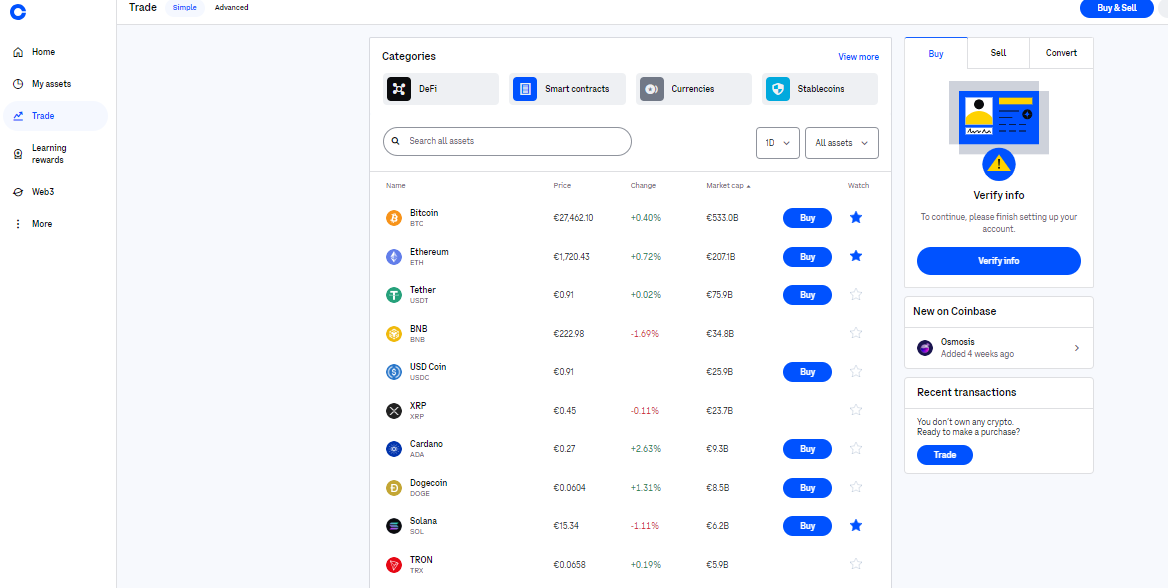
While Binance offers a larger selection of cryptocurrencies overall, it’s worth mentioning that US-based users on Binance have access to only around 100 types of cryptocurrencies.
For novice and risk-averse investors, the number of popular coins listed on Coinbase is more than sufficient. So whether you prefer the extensive options of Binance or the curated selection on Coinbase, both platforms cater to a wide range of crypto enthusiasts.
Security
When it comes to security, both Coinbase and Binance excel in many aspects. They prioritize the safety of your assets by storing them offline in cold storage and implementing additional measures to protect against hacks.
Coinbase even has third-party insurance with Lloyds, providing an extra layer of protection. Binance, on the other hand, boasts a “Secure Asset Fund for Users” valued at over $1 billion.
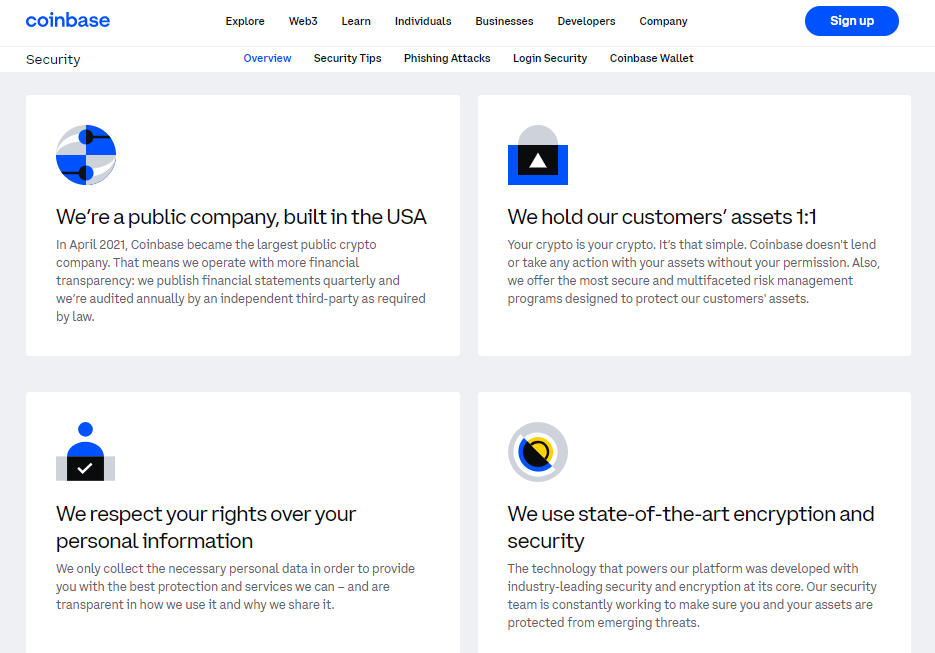
Both platforms also prioritize user-level security and provide ample information on how to safeguard yourself. However, it’s important to consider regulatory scrutiny as another risk factor. Binance has faced challenges with authorities worldwide, working diligently to regain their trust.
While this innovative exchange offers unique features, it’s important to stay updated on any regulatory developments. In contrast, Coinbase has generally maintained a positive regulatory standing but withdrew certain product plans due to SEC pressure.
By understanding the security measures and regulatory landscape of both platforms, you can make informed decisions while navigating the exciting world of cryptocurrency trading.
Mobile App
When it comes to cryptocurrency exchanges, both Binance and Coinbase offer mobile apps for iOS and Android smartphones, allowing users to access the same features as their desktop versions. But which app reigns supreme in terms of performance and user-friendly experience? Let’s dive in and find out!
The Binance app not only mirrors the excellent performance of its website but also boasts an aesthetic appeal that inspires trust in the platform. With all the tools necessary to conduct transactions conveniently at your fingertips, the Binance app delivers a seamless user experience.
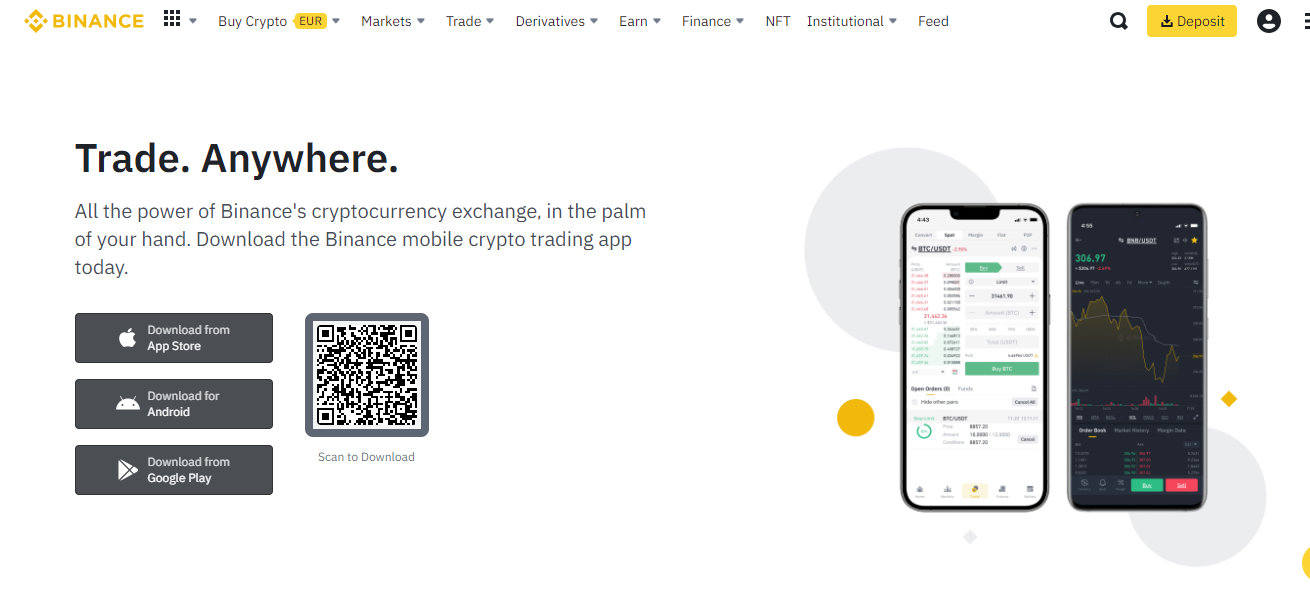
What sets it apart is its support for non-fungible tokens (NFTs), allowing users to easily exchange and deposit these unique digital assets.
On the other hand, Coinbase offers two applications catering to different user needs. The Coinbase app, designed with simplicity and ease of use in mind, is perfect for both novice and seasoned investors. It provides a user-friendly interface and basic functionalities, making it an ideal choice for those new to the world of cryptocurrencies.
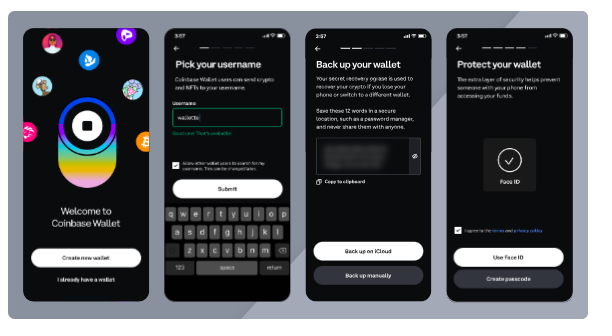
Meanwhile, the Coinbase Pro app caters to the needs of active traders, offering sophisticated tools, in-depth charts, accurate market data, and everything required for advanced trading strategies.
When it comes to user ratings, both apps receive high marks. The Binance app holds a solid rating of 4.2/5 on the Android market, while the Coinbase app is slightly higher at 4.3/5. These ratings reflect the overall satisfaction and positive experiences of users.
Wallets
When it comes to crypto wallets, Coinbase and Binance have got you covered. These stand-alone apps provide a friendly and intuitive user experience while keeping your digital assets safe. By moving your tokens out of a custodial wallet and into an external wallet, you gain several advantages.
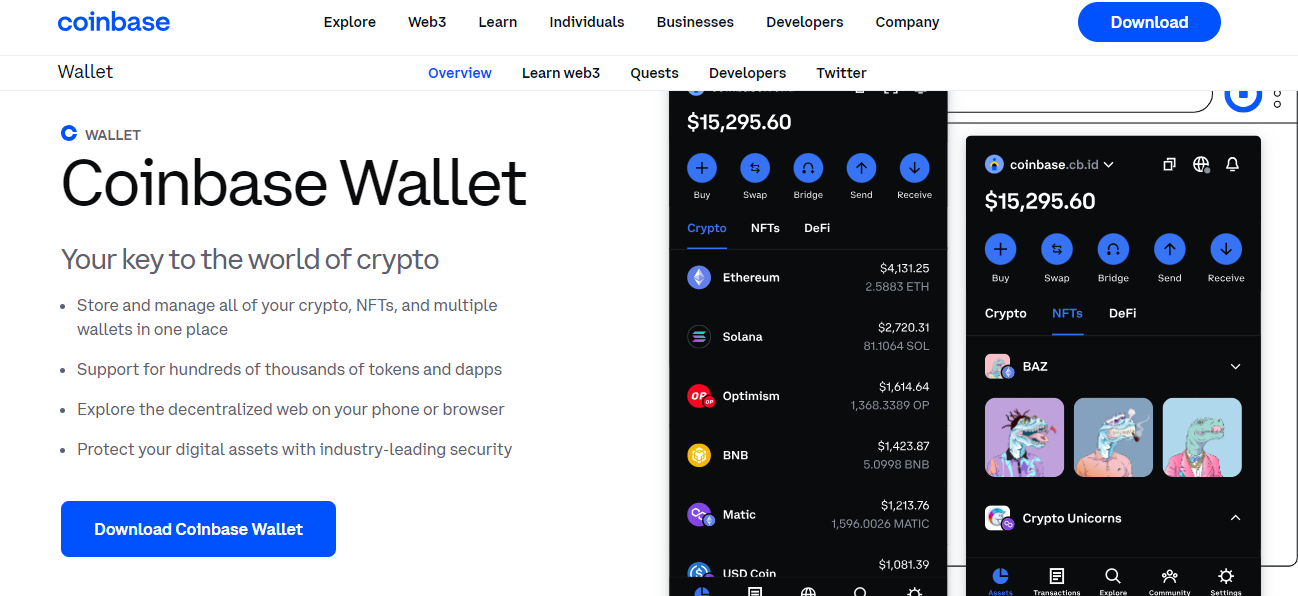
Firstly, the risk of losing your funds in case of exchange hacks or bankruptcy is greatly reduced. Plus, with full control over your crypto keys, you can connect your wallet to different platforms and explore new possibilities.
Just remember, with great power comes great responsibility. Losing your wallet password could mean losing access to your funds, so keep it safe! While Coinbase Wallet offers a straightforward experience, Binance Trust Wallet provides lower transaction fees and supports the Binance Smart Chain for a wider range of tokens and decentralized applications.
Choose the wallet that suits your needs and embark on your crypto journey with confidence and charm.
Fees
When comparing Binance and Coinbase in terms of fees, it’s essential to understand their respective fee structures. Both platforms employ a maker-taker fee scheme, where fees are determined by the transaction type and volume.
On Binance, the fees for trades under $50,000 start at 0.10% and decrease as the order size increases. Transferring fiat from a bank account is free, but Binance imposes a 1.8% fee on the main exchange and a 4.5% fee on Binance US for debit card transactions.
Coinbase, on the other hand, charges a fixed fee for transactions under $200, ranging from $0.99 to $2.99. For orders exceeding $200, a 0.5% transaction fee, along with a convenience fee, applies.
Additionally, Coinbase has a spread-based fee of 0.50%. Other fees depend on the payment method, with ACH transfers being free, bank account or USD Wallet transactions incurring a 1.49% fee, and credit or debit card transactions carrying a 3.99% fee. Wire transfers have additional fees of $10 for incoming and $25 for outgoing transfers.
It’s worth noting that Coinbase Pro has a different fee structure, ranging from 0% to 0.5% for each trade. Taker fees on Coinbase Pro range from 0.04% to 0.50%, while maker fees are between 0% and 0.50%.
Understanding the fee structures of Binance and Coinbase is crucial when choosing a platform that aligns with your trading preferences and budget. Consider your transaction volume, type, and preferred payment method to make an informed decision that suits your needs.
| Fees | Coinbase | Binance |
|---|---|---|
| Purchases | 0% to 0.50% | 0.02% to 0.1% |
| Trades | 0.50% | 0.02% to 0.1% |
| Crypto conversions | 0.50% to 2% | – |
| Bank accounts | 1.49% | Free outside of the U.S. |
| Credit/debit card | 3.99% | 3% to 4.5% |
| ACH Transfer | Free | Free |
| Wire transfer | $10 deposit, $25 withdrawal | $15 for U.S. customers |
| Wallet | 1.49% | – |
| Other fees | $0.99 to $2.99 based on the amount | 0.50% instant buy and sell fee |
Staking Rewards
When it comes to staking rewards, both Coinbase and Binance offer enticing options for crypto investors. Staking is a way to earn income with your cryptocurrency by participating in a proof-of-stake (PoS) network. By staking your crypto, you contribute to the security and efficiency of the underlying blockchain and, in return, receive more assets from the network.
Coinbase provides a staking service for select cryptocurrencies like ETH, Tezos (XTZ), and Algorand (ALGO). This allows users to earn rewards effortlessly and securely, without the need to manage private keys or perform complex tasks. In addition, Coinbase offers educational videos where users can earn cryptocurrencies while learning.
On the other hand, Binance offers DeFi staking and locked staking. DeFi staking simplifies participation in decentralized projects, making it user-friendly and straightforward. Locked staking involves locking digital assets on a PoS blockchain for a specific duration, contributing to the network’s security while earning staking rewards.
Final Verdict
In the battle of Binance vs. Coinbase, the choice ultimately depends on your personal preferences and location. Coinbase stands out as a user-friendly and accessible platform, making it an ideal choice for new cryptocurrency investors looking to test the waters. However, the fees are a lot higher and the trading features limited. With availability in almost every U.S. state (excluding Hawaii), Coinbase offers a solid entry point into the world of crypto.
On the other hand, Binance offers a more extensive platform with advanced functionality and lower fees. It provides a whole ecosystem where crypto developers can innovate and build new projects. The launchpad feature allows early investment in these projects, offering unique opportunities to its users.
While Binance may require a bit more effort to navigate and understand, it provides a broader range of features for those seeking deeper involvement in the crypto space. Overall, Binance seems to be the best choice for crypto enthusiasts that are serious about trading.

